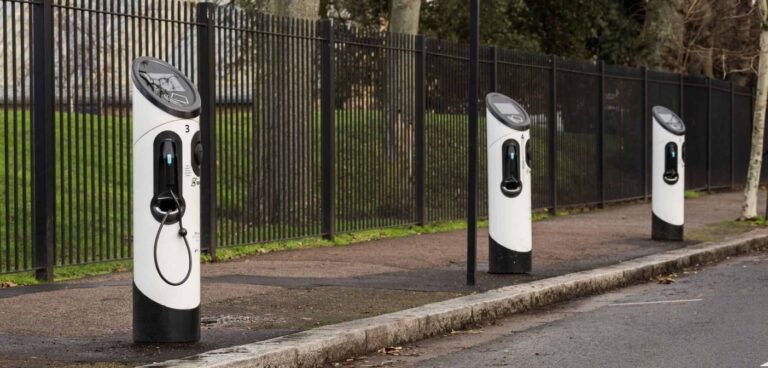A new report has revealed “the most significant shortages and industry conditions” threatening the UK’s charging infrastructure necessary to support 2030 EV targets.
Released by EV charging consultancy Versinetic, the Key Barriers to EV Charging Infrastructure Rollout report focuses on charging and reveals how shortages in components, EV experts and skills are slowing progress.
According to the study, the electricity grid, economic market forces, batteries, on-street charging and standards need to adapt to ensure a smooth roll out of the charging infrastructure necessary to support increased EVs on UK roads.
Whilst the UK government expects most charging to take place at home, the Climate Change Committee suggests that some 1,170 charge points will be required per 100km of road by 2030.
However, it is estimated that at the current rate of growth only one quarter (76,849) of the public charging points needed to meet expected demand (325,000) will be installed by 2032.
Dunstan Power, director of Versinetic, said: “Each day we are moving further along the path to EVs dominating our roads. However, the pandemic has slowed down progress on several fronts.
“Currently, shortages in components, and skilled personnel are the tip of the iceberg. Grid challenges, while manageable today, need some consideration to ensure that where possible drivers can charge at home.
“The revenue model for players in the charging market is also being developed to ensure that public chargers generate profit in some way.”
According to Power, predicted lithium shortages will drive innovation in battery recycling while on-street charging plans will be put in place for those unable to charge at home.
“On top of this standards will need to ensure interoperability,” added Power.





